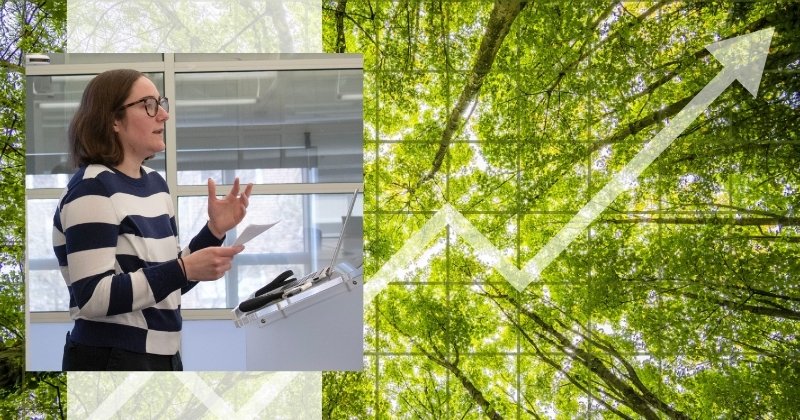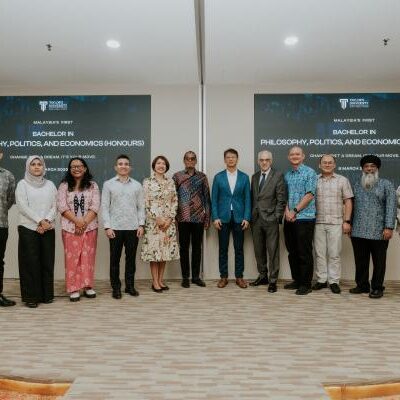This past spring break, she participated in a UD Alternative Breaks (UDaB), volunteering in Washington, D.C., at Bread for the City, learning about food banks and food aid.
“I’ve participated in service before, but the program I was on was incredibly immersive and our community partners, Bread for the City, were also wonderful,” Aucker said. “I learned a lot about food banks and food aid which made me even more excited to hopefully participate in research this summer.”
While Aucker remains open to various different career fields, environmental stewardship and community service remain at the core of her motivations.
“I think it would be cool to work for the Environmental Protection Agency (EPA) or some other government environmental organization,” Aucker said. “But I’ve also always enjoyed community work, so I could see myself at an environmental nonprofit as well. If I don’t go into something research based, that would be what I’m most interested in.”
According to McGranaghan, students who come out of UD with an ENRE degree can take various post-graduate paths, including careers in public policy, sustainability, education and research — for example, by pursuing graduate programs and research fellowships in non-governmental organizations.
“Our majors prepare students for a wide range of environment-related careers,” McGranaghan said. “I also see many students go into environmental consulting, where they consult for state or federal governments or non-governmental organizations. For example, our students might help to quantify the benefits of ecosystem service projects in economic terms.”
Right now, Aucker is interested in pursuing issues surrounding the U.S. food system and sustainability.
“I am particularly interested in food issues, like the food system, how food distribution works and food access issues,” Aucker said. We’re failing at the last one a lot of the time, and I’m interested in learning what policy can do to remedy that.”
McGranaghan emphasized that students, like Aucker, with this dual passion for the environment and economics have no shortage of opportunities. Especially as they tend to be passionate about environmental issues and analyzing these problems through an economic lens.
“Our students want to better understand human decision making and behavior and how that impacts the environment,” McGranaghan said.“A better understanding of these human dimensions can help shape policies that effectively protect the environment, or that encourage people to act in more environmentally friendly ways.”





